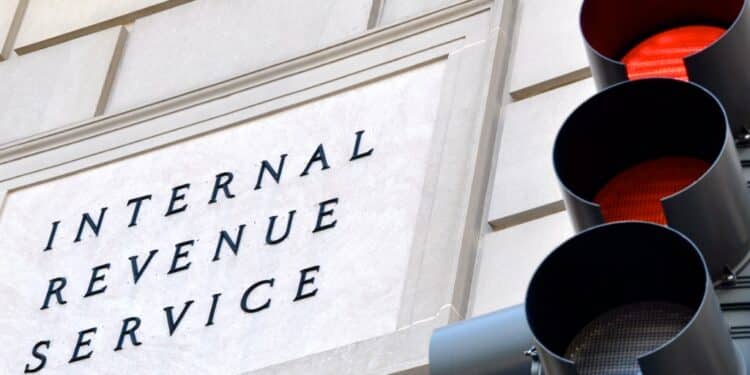On April 18, the Internal Revenue Service (IRS) Whistleblower Office released its first-ever multi-year operating plan. Whistleblower advocates claim that this plan is an important step to improve the IRS Whistleblower Program, which has been plagued by massive delays in recent years.
According to IRS Whistleblower Office Director John Hinman, the plan “outlines our guiding principles, strategic priorities, recent achievements, and the efforts currently underway to drive progress” and “includes both short-term operational planning and longer-term planning for the future of the program.”
“The IRS Whistleblower Office Operating Plan incorporates extensive feedback received from whistleblowers, whistleblower practitioners, IRS employees, oversight bodies and other program stakeholders,” said Hinman. “Whistleblower information that the IRS can act on is an important component of effective tax administration as it bolsters the fair, efficient and effective enforcement of our nation’s tax laws, the success of our voluntary tax system and our efforts to reduce the tax gap.”
The plan lays out six strategic priorities:
- Enhance the claim submission process to promote greater efficiency.
- Use high-value whistleblower information effectively.
- Award whistleblowers fairly and as soon as possible.
- Keep whistleblowers informed of the status of their claims and the basis for IRS decisions on claims.
- Safeguard whistleblower and taxpayer information.
- Ensure that our workforce is supported with effective tools, technology, training and other resources.
“This is an important step forward,” says whistleblower attorney Stephen M. Kohn, founding partner of Kohn, Kohn & Colapinto. “This is a critical program that has been held back by antiquated regulations. It’s time to modernize the program and effectively prosecute tax evaders.”
“This is welcome news for IRS whistleblowers whose cases languish for years, sometimes up to a decade or more, before the whistleblower can be paid an award,” says whistleblower attorney David Colapinto, also founding partner of Kohn, Kohn & Colapinto.
“Of particular interest to the whistleblower community is the IRS’ emphasis on increasing efficiencies to speed up the process and issuing whistleblower awards faster and as soon as possible,” Colapinto adds.
“While paying whistleblower awards can incentivize other whistleblowers to report major tax fraud by wealthy tax cheats, the failure to pay whistleblower awards timely by taking over a decade to make payments, can act as a disincentive to blowing the whistle,” Colapinto adds. “This is an important step towards making the IRS whistleblower program more effective. To date, the IRS reports that it has collected more than $7.4 billion in taxes attributable to whistleblowers reporting tax fraud and underpayments. The IRS Whistleblower Program has potential to collect even more if it improves its program to encourage more whistleblowers to come forward.”
Through the IRS Whistleblower Program, qualified whistleblowers, individuals who voluntarily provide original information that leads to a successful IRS action, are eligible to receive monetary awards of 15-30% of the money collected thanks to their disclosure.
The program, which revolutionized tax enforcement by incentivizing insiders to come forward and disclose hard-to-detect misconduct, has struggled in recent years as delays have grown and payouts to whistleblowers have dropped. While recent administrative reforms have strengthened the program, advocates believe that it has even more potential.
While advocates have praised the reform efforts of Hinman and his staff, they have also been calling for the passage of the bipartisan IRS Whistleblower Improvement Act. Introduced in the last session of Congress by Senators Chuck Grassley (R-IA) and Ron Wyden (D-OR) the bill makes a number of reforms to the program. In January, Senators Wyden and Mike Crapo (R-ID) unveiled a discussion draft of a bipartisan bill offering reforms to the IRS, including the provisions previously found in the IRS Whistleblower Improvement Act.
National Whistleblower Center has set up an Action Alert allowing individuals to write to their members of Congress urging them to pass the reforms to strengthen the IRS Whistleblower Program.
Join NWC in Taking Action:
Further Reading:
IRS Whistleblower Office releases operating plan outlining integrated approach to advance program


